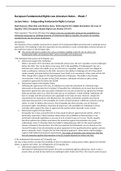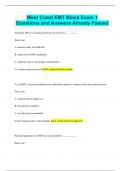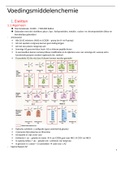Samenvatting
Summary European Fundamental Rights Law - Literature Summaries Week 7
Summary document of the readings for European Fundamental Rights Law week 7: - Mark Dawson, Elise Muir and Monica Claes, ‘Enforcing the EU’s Rights Revolution: the Case of Equality’ (2012) European Human Rights Law Review 276-291; - CJEU, C-286/12 European Commission v. Hungary, judgment of 6...
[Meer zien]













